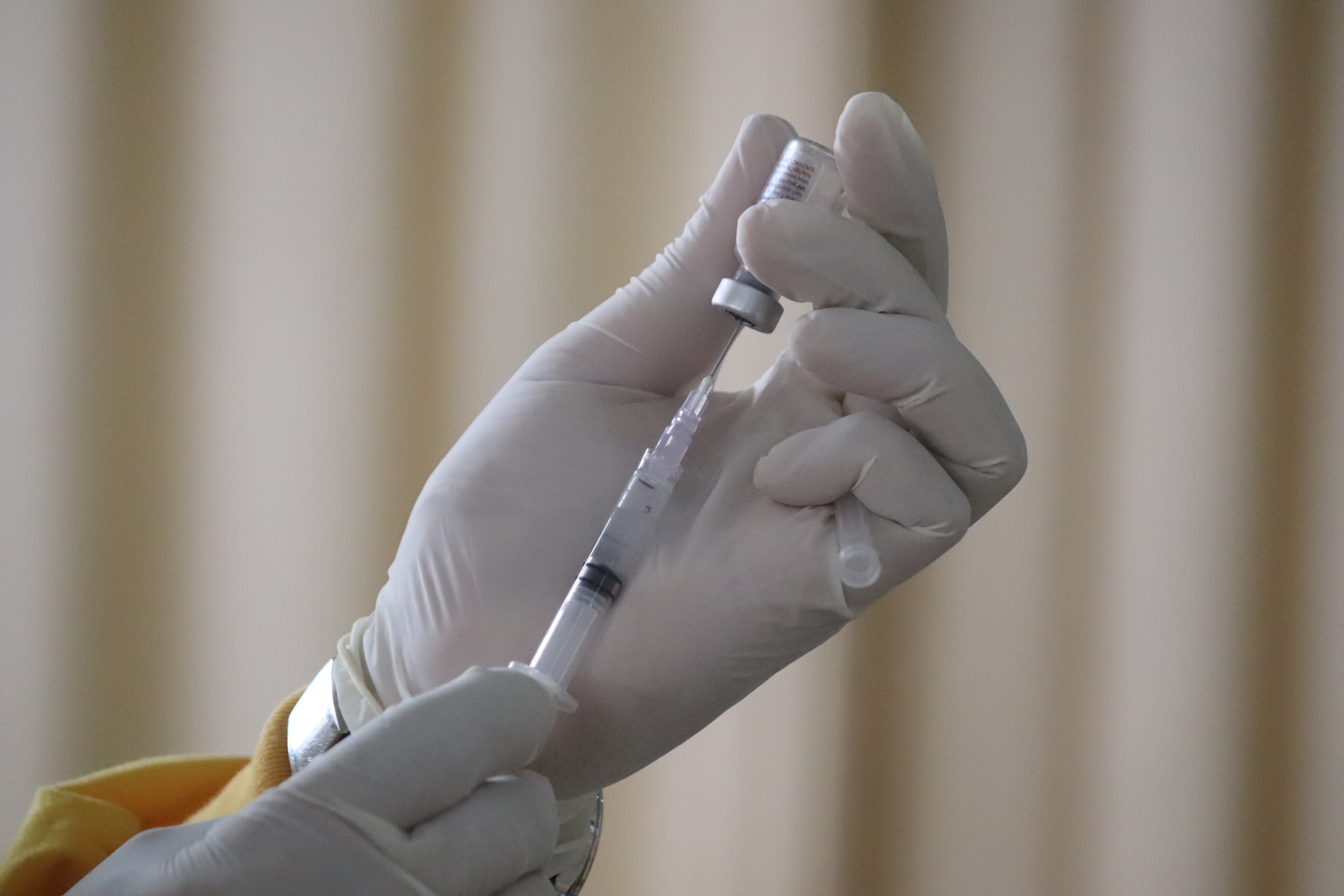Contents
- 1 What are paid vaccine trials?
- 2 What are the advantages of participating in paid vaccine trials?
- 3 What are the disadvantages of participating in paid vaccine trials?
- 4 How do paid vaccine trials work?
- 5 What do researchers learn from conducting paid vaccine trials?
- 6 Commonly Asked Questions (FAQs)
- 6.1 How much are participants compensated in paid vaccine clinical trials?
- 6.2 How do I find out if I am eligible to participate in a paid vaccine clinical trial?
- 6.3 Will participation in a paid vaccine trial prevent me from leaving prior to completion?
- 6.4 What type of information is normally collected in paid vaccine trials?
- 6.5 How long do paid vaccine trials usually last?
- 6.6 If I am interested in participating in a paid vaccine trial, what questions should I ask?
- 6.7 What to ask:
What are paid vaccine trials?

Paid vaccine trials are clinical studies whereby the efficacy and safety of a vaccine by testing human volunteers. As witnessed during the recent Covid-19 pandemic, vaccine development is critical and depends upon successful human clinical trials. By offering compensation, clinical trial recruiters can recruit diverse patient populations more easily.
Diversity and inclusion in clinical trial recruitment is a trending concern. Different human makeups (age, weight, background) tend to create a myriad of different biochemical reactions to foreign vaccine products. Understanding the cause and effect of these biochemical reactions helps to create better patient outcomes. Without enough participants researchers cannot enter a drug candidate for trial. Paid clinical trials remains as one of the most powerful vehicles for solving medical mysteries.
How do I find the paid vaccine trials near me?
Based on your personal health history, you may receive an invitation to participate in paid vaccine clinical trials near your home. Physician groups and clinical trial sponsors work together to find suitable candidates for participation. Other vehicles for finding paid vaccine trials near you might be local libraries, clinics, hospitals, and research-based educational institutions.
Who conducts paid vaccine trials?
Most paid vaccine trials are hosted by the pharmaceutical companies in charge of vaccine development. They routinely develop improved and new vaccine products and rely upon successful human clinical trials to receive FDA approval. By enlisting the help of paid participants, they can better assess how ready their product is to enter the clinical marketplace.
What are the advantages of participating in paid vaccine trials?
The advantages of participating in a paid vaccine trial stretch beyond altruistic notions. Participating in clinical trials is strategically positive in helping you address personal concerns. You may meet others who share similar concerns and may facilitate access to support groups and resources.
Other advantages are:
- The ability to receive quality of life-changing preventative care and treatment.
- Compensation to use as you like.
- More frequent trips to the doctor for check-ups which may in turn, lead to better health.
- Free medications and resources for the duration of the trial.
What are the disadvantages of participating in paid vaccine trials?
There could be some measurable inconveniences associated with participating in a paid vaccine trial such as some discomfort and undesirable side effects, most notably at the site of the injection. You may be expected to travel to routine visits where physical exams may be conducted whereby blood and saliva is collected. Clinical trial associates may also ask you to maintain a journal regarding your symptoms post injection. Other disadvantages might include:
- Experiencing unforeseen skin or drug interactions requiring more advanced care
- Receiving a placebo vs, the real drug candidate depending on the trial type
- Experiencing long-term complications
- Emotional fatigue, weariness
How do paid vaccine trials work?
The clinical study pathway for vaccine approval is multifaceted. It involves a step-by-step process whereby; clinical trials are necessary to determine approval status. Clinical sponsors must complete a series of preliminary steps towards vaccine approval include:
- An IND (Investigational New Drug) application must be submitted.
- Pre-licensure vaccine clinical trials to determine efficacy must be completed.
- A Biologics License Application (BLA) must be submitted.
- Inspection of the manufacturing facility must be conducted at regular intervals.
- Presentation of the clinical findings to FDA’s Vaccines and Related Biological Products Advisory Committee external icon (VRBPAC)
- Usability testing of product labeling and product information must be included and updated before going to market.
In addition to the steps above, there are four clinical trial benchmarks that must be achieved to gain FDA approval.
Phase I Paid Clinical Trials
Phase I clinical trials seek to determine how safe the vaccine product is in humans. The first phase also works to narrow down the best dosage regimen for best results and any harmful effects that may be cause for discontinuance.
Phase II Paid Clinical Trials
Phase II clinical trials have the similar objectives as in phase 1, but with expanded parameters and safety profiles.
Phase III Paid Clinical Trials
Phase III clinical trials expand the recruitment field usually involving thousands of paid clinical volunteers. The aim is to diversify the vaccine testing parameters to determine overall efficacy.
Phase IV Paid Clinical Trials
In this last phase of the vaccine trials, the vaccine therapeutic is on its way to the public market. This phase is to determine any unknown toxicities, potential drug interactions, and to compare the efficacy of the test intervention to other standards of care.
What do researchers learn from conducting paid vaccine trials?
Researchers learn a great deal about how the body responds to various vaccine product ingredients through the lens of conducting paid vaccine trials. Clinical sponsors apply this knowledge to validate new vaccine candidates or improve new ones. Comprehensive evaluation processes executed throughout the clinical trial provide the information needed.
The research teams seek to identify biomarkers needed to define clinical endpoints and support the findings. Through the vehicle of safe clinical testing and application, we can enjoy a safer existence from deadly strains of bacteria and viruses.
Commonly Asked Questions (FAQs)
-
How much are participants compensated in paid vaccine clinical trials?
Paid vaccine clinical trial participants may receive compensation values ranging from $45 per day to $500 per day depending on the clinical trial type and sponsor. Typically, vaccine trials that feature a greater opportunity for adverse side effects, hospital stays, and other inconveniences pay more than their clinical trial counterparts.
-
How do I find out if I am eligible to participate in a paid vaccine clinical trial?
The eligibility criteria for paid vaccine trials vary considerably. Clinical trial sponsors look for healthy candidates who are more likely to better tolerate vaccine products.
Eligibility for paid vaccine trials may depend on your personal health information related to:
• Age preferences
• Gender
• Occupation
• Lifestyle
• Preexisting health challenges
• Long-term goals
• Health history -
Will participation in a paid vaccine trial prevent me from leaving prior to completion?
Participation in any clinical trial is voluntary, and you are allowed to leave for any reason. Clinical trial coordinators expect a few participants to drop out of the study prematurely and are very understanding when one must choose to do.
Common reasons cited for leaving a paid vaccine clinical trial are often because of hardships and extenuating personal circumstances. In some cases, discontinuation may be because the vaccine candidate studied is not tolerated as well as hoped. Whatever the reason, permission to exit the study is not necessary.
-
What type of information is normally collected in paid vaccine trials?
Those interested in participating in paid vaccine trials should expect to share substantial amounts of personal information. Researchers will use the information provided to qualify you as a viable candidate.
The clinical trial sponsors usually collect information using self-guided questionaries and surveys to help form hypotheses and validate endpoint data. Information typically collected related to:
• Individual experiences and satisfaction
• Health challenges because of the vaccine trial
• Lifestyle choices
• Drug use
• Supplement use
• Genetic precursors
• Personal health values and test results -
How long do paid vaccine trials usually last?
Clinical trials do not have set timelines and vary from study to study. Clinical trial lengths are dependent upon a series of ongoing factors such as:
• Patient recruitment and retention
• Patient health
• The type of paid clinical trial I.e., randomized, double-blind
• Adverse health reactions or results
• Post-clinical trial care and follow-ups -
If I am interested in participating in a paid vaccine trial, what questions should I ask?
Clinical trial investigators must disclose all relative information about the paid clinical trial you are enrolled in and any inherent risk factors.
This disclosure process is called informed consent.
The NIH maintains clear guidance for the structure and safety of clinical trial execution. There is a strict emphasis on patient safety, and as such, an informed consent disclosure must include the following information:
1. The comprehensive nature of the treatment, procedure, or drug.
2. Any inherent risks associated with the intended treatment methods.
3. Reasonable alternatives to the procedure or treatment intervention.
4. Assessment and acknowledgment that you understand items 1-3.Informed consent is required and articulates the agreement between you, your healthcare physician, and clinical trial sponsors. The purpose of informed consent is to provide the patient with the details of every facet of the intended clinical trial study plan. This goal of informed consent is to establish trust and confidence between the eligible participant and the clinical trial sponsor team leads.
-
What to ask:
– Inquire as to the goals or aim of the highly paid clinical trial.
– Ask what the likelihood of side effects may be.
– Ask what side effects should be anticipated.
– Inquire about possible known drug interactions.
– Ask what benefits you are entitled to such as post trial care services.
– Clarify the type and means for any out-of-pocket expenses.
– Clarify the exact method of compensation and timeline for payments.
– Clarify any travel and accommodations that may be necessary and their corresponding expenses.
– You may ask if family members may accompany you during hospital stays or doctor visits.
– Inquire about the number of clinical visits may be expected.
– Ask what home-care services and strategies are available during the paid clinical trial should you require more advanced care.
– Make sure you are clear on any procedures, drug interactions, and long-term consequences associated with the trial intervention.
– Inquire about the length of speculation of hospital stays along with any associated costs.
– Some clinical studies are randomized trial designs where they include the use of a placebo. Therefore, asking what type of trial design and what is involved with the paid clinical study you are interested in.
– Inquire about the endpoint findings and any access to results.
– Inquire as to the number of patients will be recruited.
